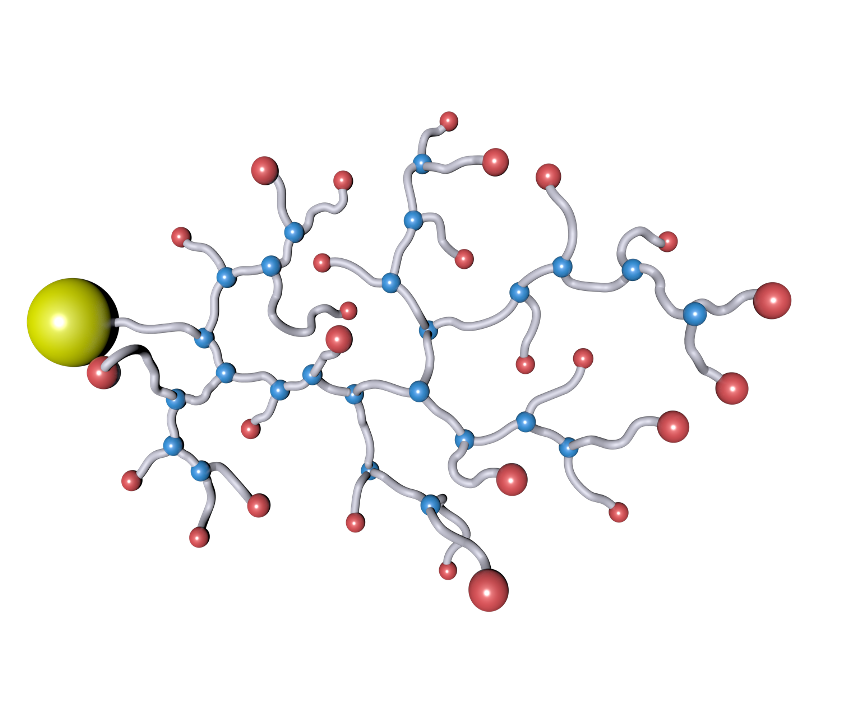Polymers in Building And Construction: Stronger, Lighter, and A Lot More Sturdy
Polymers in Building And Construction: Stronger, Lighter, and A Lot More Sturdy
Blog Article
Checking Out the Varied Applications and Benefits of Polymers in Different Industries
Polymers, with their varied variety of residential or commercial properties and capabilities, have become essential in different sectors, each reaping special advantages from their application. Polymers. From boosting safety and efficiency in the vehicle industry to transforming clinical gadgets in the healthcare sector, polymers play a critical duty. Moreover, their environmentally friendly nature is altering the landscape of sustainability practices. As we look into the midsts of polymers in electronics, we discover advanced advancements, while their structural integrity transforms the realm of building and infrastructure. The pervasive influence of polymers across industries is a testimony to their flexibility and flexibility, shaping the future of countless sectors.
Automotive Sector Applications
Polymers play a critical function in enhancing the efficiency and durability of various components within the auto industry. One famous use of polymers in the automobile industry is in the production of lightweight components.

Healthcare Industry Benefits
In numerous health care applications, the benefits of utilizing polymers are extensively acknowledged for their diverse series of beneficial residential or commercial properties. Polymers play an important duty in the healthcare sector as a result of their adaptability, biocompatibility, and cost-effectiveness. Among the main advantages of polymers in health care is their capacity to be tailored to certain demands, such as versatility, resilience, and biodegradability, making them suitable for a wide variety of medical applications.
Polymer-based products are thoroughly made use of in clinical gadgets, such as catheters, implants, prosthetics, and medicine distribution systems, because of their biocompatibility and capability to mimic all-natural cells. These materials can reduce the risk of allergic responses or rejections, boosting client security and outcomes. Additionally, polymers are light-weight, making them appropriate for wearable medical gadgets and guaranteeing individual convenience.
Additionally, polymers allow the growth of innovative therapy approaches, such as hydrogels for cells design and nanocomposites for targeted medicine delivery. Their convenience of handling and sanitation makes them important for maintaining high standards of hygiene in health care settings. Overall, the varied benefits of polymers contribute considerably to innovations in medical modern technology and individual treatment.
Environmental Benefits of Polymers

Furthermore, polymers can add to power cost savings because of their lightweight nature. In industries such as transport, light-weight polymer materials can help in reducing fuel usage and greenhouse gas emissions. Furthermore, polymers can enable the advancement of energy-efficient products such as insulation materials that boost power conservation in structures.
Furthermore, polymers play an important duty in reducing water contamination. The usage of polymer-based purification systems can effectively remove contaminants and impurities from wastewater, guarding water sources and communities. Overall, the ecological benefits of polymers make them useful properties in promoting sustainability and environment-friendly practices click this link across different industries.
Polymers in Electronics and Technology
Thinking about the increasing need for cutting-edge and sustainable remedies in modern markets, the combination of advanced polymer technologies in the realm of electronics and innovation has become a crucial technique for driving effectiveness and efficiency. Polymers have actually reinvented the electronic devices industry by making it possible for the manufacturing of lighter, more flexible, and long lasting electronic tools. From smart devices to clinical gadgets, polymers play an essential role in boosting product style and capability.
One significant advantage of polymers in electronic devices is their shielding residential or commercial properties, which aid secure fragile electronic components from ecological aspects and electric disturbance. In addition, polymers are necessary in the growth of flexible display screens, wearable modern technology, and printed electronics, offering endless possibilities for creating wise and interconnected devices.
Moreover, using polymers in electronic packaging has actually resulted in advancements in miniaturization and thermal management, boosting the total performance and dependability of digital systems. As innovation remains to progress, the versatility and adaptability of polymers will certainly drive better development in the electronic devices industry, forming the future of innovation.
Duty of Polymers in Building And Construction and Facilities
The assimilation of innovative polymer materials in building and framework projects has changed the way frameworks are made and constructed in modern times. Polymers supply various benefits in the building market as a result of their adaptability, sturdiness, and cost-effectiveness. One key his response duty of polymers in building is their usage in coatings and sealers, offering security against ecological elements such as dampness, UV radiation, and rust. In addition, polymers are utilized in the production of lightweight and high-strength composite products, enhancing the architectural integrity of structures while lowering general weight.
Furthermore, polymers play a vital role in sustainable building practices by allowing the development of energy-efficient frameworks. Shielding materials made from polymers aid manage indoor temperatures, decreasing the need for home heating and cooling systems and ultimately reducing power intake - Polymers.
Final Thought
In final thought, polymers play a vital function in various industries such as automotive, health care, ecological, electronic devices, and building. Their functional buildings make them useful in creating innovative solutions and products. From enhancing gas efficiency in vehicles to improving medical devices, polymers supply various advantages. In addition, their influence on lowering waste and advertising sustainability highlights their significance in check over here modern-day applications. The extensive use of polymers shows their substantial contribution to advancing modern technology and enhancing quality of life.
Report this page